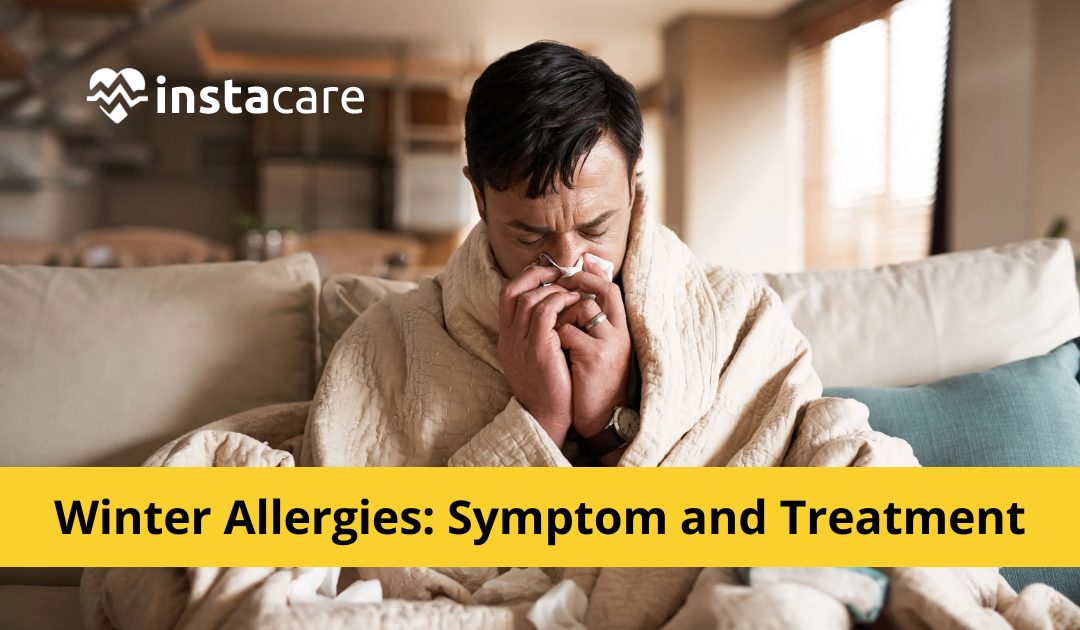As the summer is going and winter is coming in its full swing, winter allergies are just around the corner. Most people don't think of allergies as happening in the winter, but they do. However, it's vital to be aware that allergies throughout the winter do provide a few unique challenges. Knowing how to prevent them or reduce triggers will help you feel your best throughout the entire winter.
This article will go through what winter allergies are, their symptoms, and what we can do to cure them.
What Causes Winter Allergies?
Winter allergies are nothing more than standard seasonal allergy symptoms. You're more likely to spend more time inside and expose yourself to indoor allergens during the winter, though, due to the colder and harsher weather that is typical of the season.
The following are also a few of the most typical indoor allergens that can aggravate your wintertime allergies:
- Dander Mites: These tiny insects proliferate in beds and mattresses. They can produce allergic reactions when their feces and other leftovers are released into the air.
- Pet Particles: Pet fur and hairs can cause allergy any time of the year, but particularly in the winter when we spend more time indoors, pet particles and proteins from skin cells can trigger an allergic reaction.
- Fungus: This fungus thrives in humid, wet environments like restrooms and basements. Mold spores can cause allergy symptoms when they are in the air.
- Cockroaches: The leftover excrement and shells, In search of shelter from the cold, rodents bring dander, feces, urine, and parasites that could cause allergic reactions.
When exposed to these allergens for an extended period or frequently, our body identifies them as a threat. the exaggerated response of our body to these particles results in Allergy.
View More: Dengue Fever Symptoms Causes and Treatments
Preventative treatments are the best method to manage allergy symptoms. However, even if your allergy symptoms are at their worst, you can still find relief.
Symptoms To Identify Winter Allergy
The winter allergy symptoms will be highly familiar to you if you experience seasonal allergies. These consist of the following:
- Itchy, watery eyes
- dark circles around the eyes are brought on by nasal congestion.
- runny or congested nose
- Sneezing
- Coughing
- Rashes or scratchy, dry skin
- daily headaches
- Nasal post-drip
- Itchy or sore throat
- breathing difficulties
- wheezing if you have seasonal allergic asthma.
How To Treat Winter Allergies?
Winter allergies are common in packed households and often mixed with a cold. And the treatment can be confusing. There are some simple things you need for a cold weather allergy treatment:
- Use Antihistamines - To lessen itching, sneezing, and congestion for easy breathing.
- Use Decongestants - remove mucus to reduce edema and congestion from different body parts.
- Try Getting Immunotherapy - which gradually exposes your body to higher amounts of the allergen and is available as allergy needles or under-the-tongue tablets. Immunotherapy helps overcome allergy issues in the long run compared to allergy medications.
Prevention Of Winter Allergies
While there are ways you can cure winter allergies, prevention is still the best thing you can do. There are a few simple things that you can make a habit of to reduce the risks of winter allergies:
- Prevent mold from getting in firewood. During winter allergy season, prevent mold from entering your home by sweeping off any firewood outside. Bring only what you're going to utilize right away.
- Make sure to clean your shoes before entering your home from the damp outside. Always clean your shoes. This will guarantee that mildew, moist leaves, and other potential winter allergy triggers stay outside.
- Vacuuming frequently will eliminate dust mites and pet dander, despite how tedious it may appear.
- Wash your bedsheets at least once a week.
- Bath Your pets regularly. If you are facing pet dander problems, try avoiding them or keeping them clean for your and your pet's health.
Winter Allergies And Cold Is Not The Same
Although the symptoms of a cold and winter allergies can appear quite similar, they differ significantly.
- Some signs can aid in separating an allergy from a cold:
- A fever may be brought on by a cold but not by winter allergies.
- A cold or infection is more likely to result in aches and pains than allergies are.
- While allergies may bring on a painful throat, they are more likely to be brought on by a cold.
- Coughs are more typical with colds but can also happen with allergies.
Colds typically last ten days or less and disappear on their own. Allergies can only go away independently due to weather changes and how much time a person spends outside.
Summing Up
Well, now you know what the things that may be causing you allergies during the winter season are. Doing the proper preventive measures will help you get rid of it. Just follow the guidelines to have an allergy-free winter!
Please book an appointment with the Best General Physician in Lahore, Karachi, Islamabad, and all major cities of Pakistan through InstaCare, or call our helpline at 03100002273 to find a verified doctor for your disease.
Source: https://instacare.pk/blog/winter-allergies-causes-symptoms-treatment


